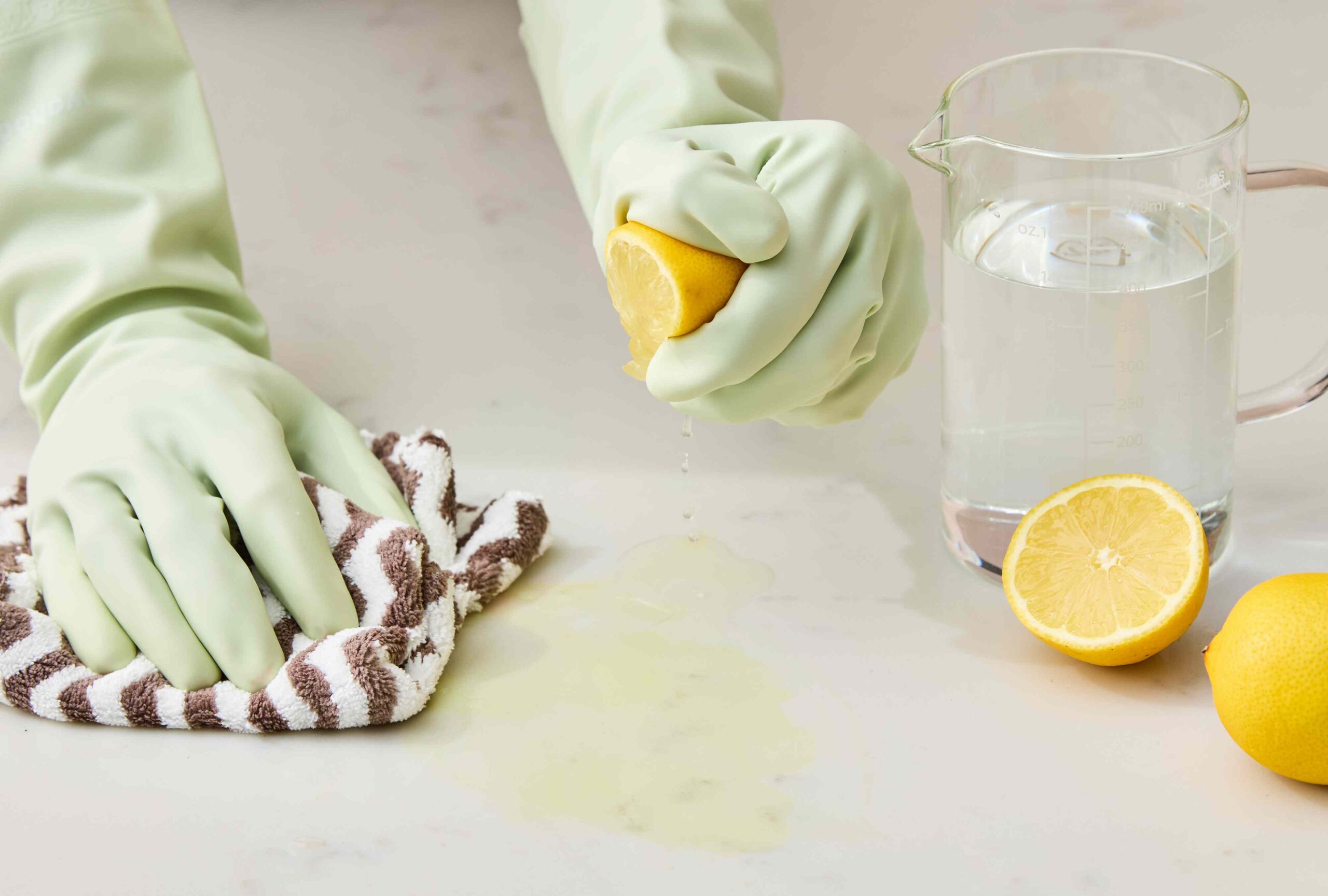:max_bytes(150000):strip_icc():format(jpeg)/SPR-ways-to-remove-turmeric-stains-from-hard-surfaces-11718218-03-2f60f617526143b29567e7fc38929d62.jpg)
Key points
- Lemon juice can root electronics, strips and damage wood, stone and cast iron due to high acidity.
- Experts warn of use on aluminum, brass, copper, electronics, wood, cast iron or stone surfaces.
- Despite its fresh smell, lemon juice can cause expensive or irreversible damage if used on the wrong materials.
Lemon juice is often moving to the ingredient when it comes to household cleansing because it is easy to add to Briy Cleaners, thanks to fresh scent and sour qualities. However, its high level of acidity can also damage certain surfaces or objects.
We touched some Pro funds for sharing an object to never clean with lemon juice so that you do not finish the taround or decor bedding.
Aluminum dishes
When it comes to cleaning the aluminum dishes, the Scott Schrader, the CothegeCare Expert and Founder, warns of lemon juice because it reacts with aluminum, leaving the surface of the oxidized markings and tasting food metal.
Instead, Schrader recommends the use of mild soaps for dishwashers aluminum.
Want more cleaning and organizing advice? Sign up for our free daily newsletter for the latest hacks, professional advice and more!
Electronics and screens
While you may be easily spoken by your favorite lemon cleaner on a TV screen or electronically for quick shine, it may actually do more harm than good.
“Acid liquid will infiltrate, encourage internal corrosion in a circle,” explains Schrader.
Phones, tablets, computers, and other electronics should be wiped with a damp microfiber cloth and an approved screen cleaner only for maintaining its condition.
Brass or copper
Be careful when cleaning your home goods from brass or copper, because lemon juice can immediately remove Patina, Jhon Lebaron, which is a co-owner of the Primavera cleaning service.
“This can be a good thing or a bad thing. Some people want these metals to be a great and new look, in that case, brilliant,” says Lebaron. “But many prefer darker patine finishes, and will be removed by lemon juice.”
Schrader agrees and explains how the acidity of the lemon will eat through varnish, which will remove the tarn, but also discover corrosion.
Wooden floors and furniture
If you deal with wooden floors or furniture, it is best to avoid the use of lemon juice because acids can damage the end to wood, and even to color change.
“The same pH-neutral cleaners you use at the counters are a good solution here,” Recommended by Lebaron.
Cast iron
Lemon juice will remove any spice with a cast iron bracket and left it more sensitive to the rust, says Schrader. It recommends use of hot or boiling water and peeling brushes to properly clean the cast iron.
Marble and Granite
When it comes to marble and granite surfaces such as the biter, Schrader recommends that it remains far from lemon juice.
“Sour of lemon juice erodes the polished surface of marble or granite, leaving clouds of stains that can only be removed with professional resources,” explains Schrader.
Instead, try using a marble cleaner that is a pH neutral stone cleaner.
